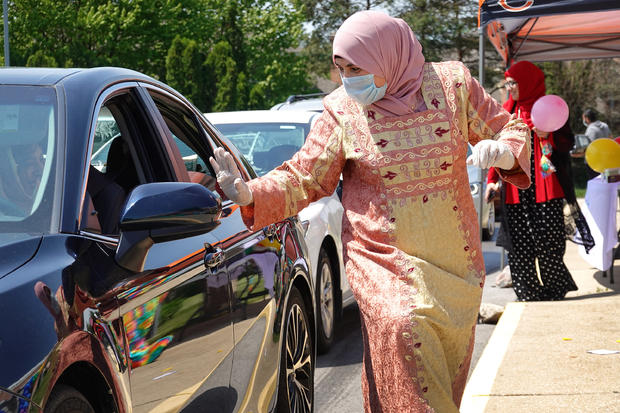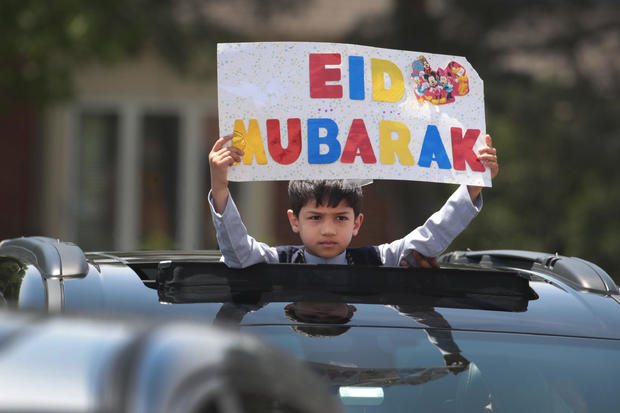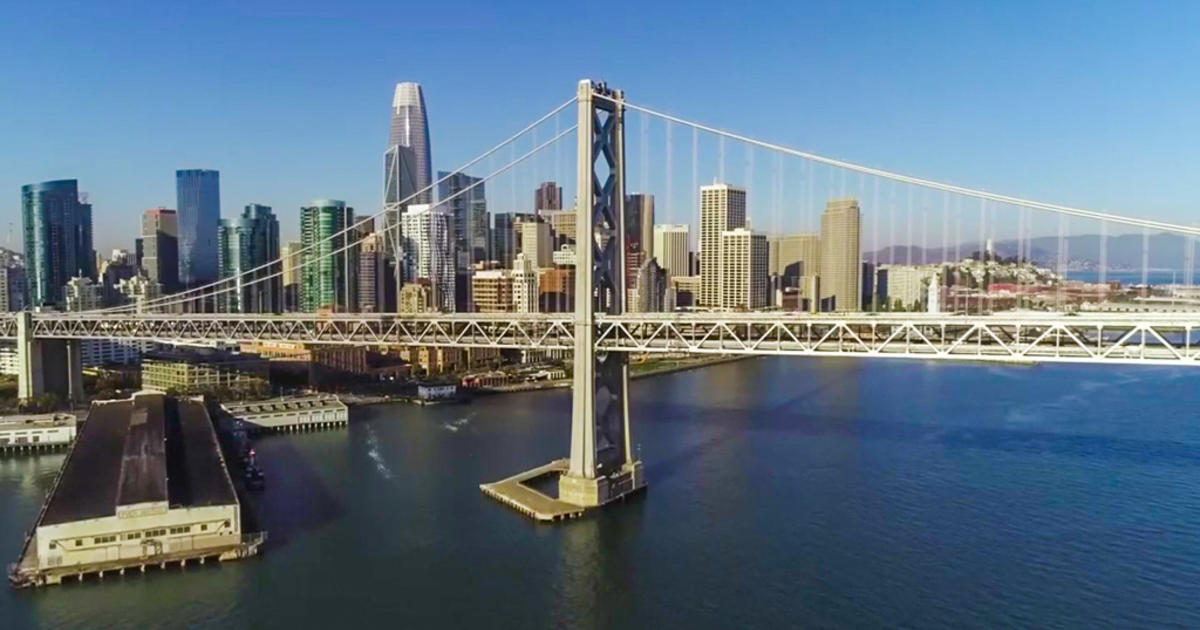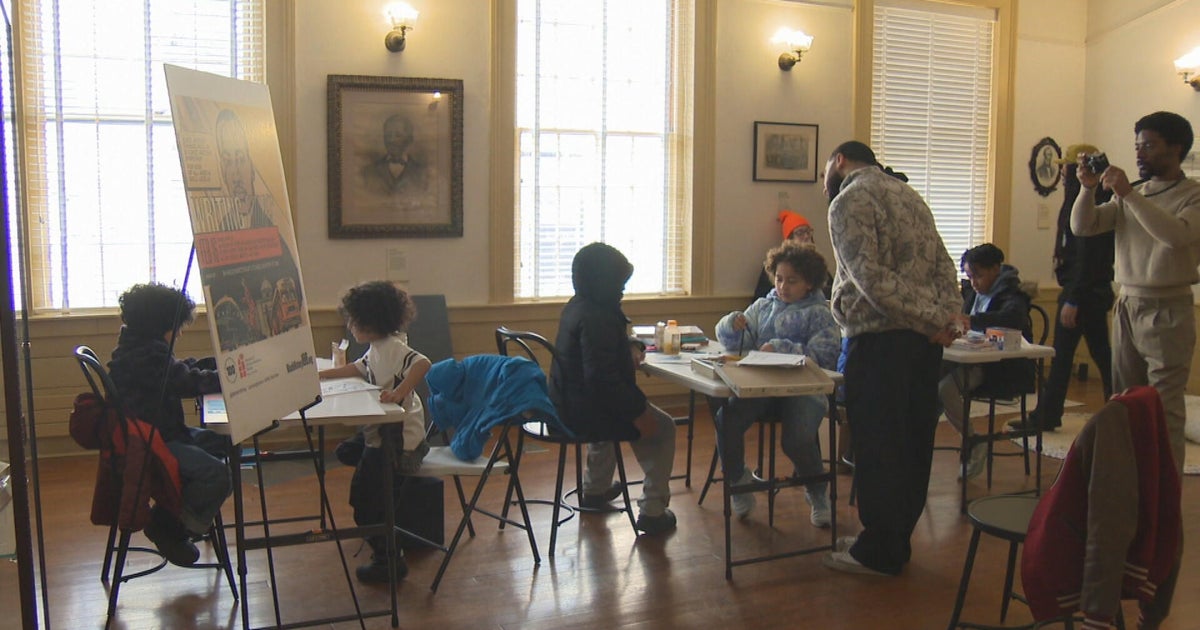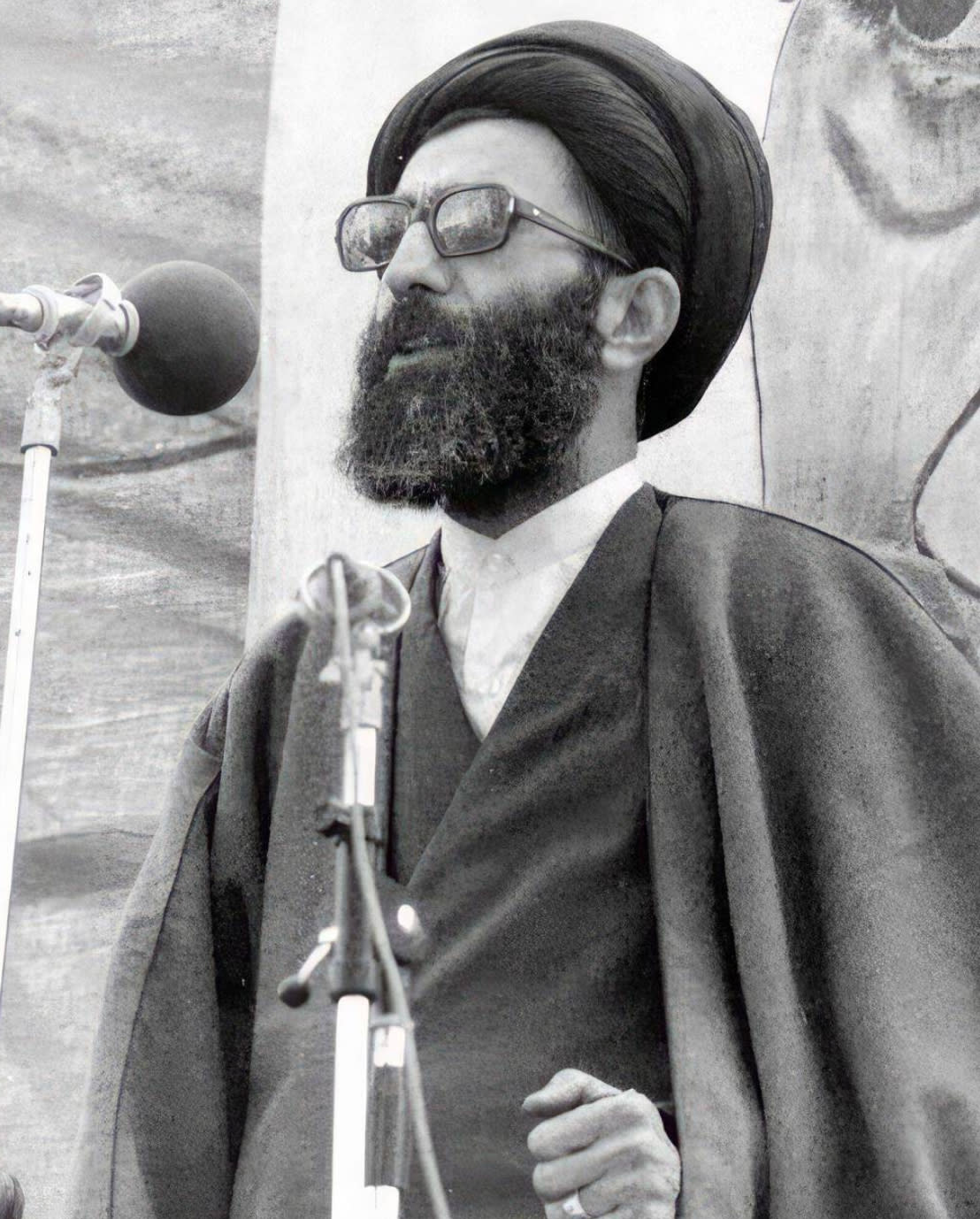Muslims across U.S. finding new ways to celebrate Eid amid coronavirus
Muslim communities across America are finding new ways to celebrate this weekend's Eid al-Fitr holiday marking the end of the holy month of Ramandan. The three-day holiday after a month of fasting from dawn to sunset is traditionally one that brings families and friends together for large and intimate gatherings, but this year, Muslims are relying on Zoom calls, live-streamed sermons and drive-through celebrations.
"Not being able to be with the larger community for Eid is actually really affecting people, especially the younger members of our community," said Rami Nsour, a religious scholar and community leader in the San Francisco Bay Area.
"It is going to require a lot of ingenuity and spontaneity on the part of individuals and families to bring some elements of celebration at this time," Nsour added.
This year, the San Francisco Muslim Community Center will hold a sermon that will be live-streamed on its Facebook page and the Nor Cal Islamic Center has four hours of programming with guest speakers and entertainment Sunday morning. The Lighthouse Mosque in Oakland is hosting a drive-through celebration to hand out food and gifts to families in the community.
The Council on American-Islamic Relations, the nation's largest Muslim civil rights advocacy organization, is encouraging Mulims across the country to share videos and photos on social media that highlight "what they are grateful for" as they celebrate the holiday while observing social distancing guidelines using #QuarantEID
Eid is a holiday that has cultural and religious meanings for Muslims.
While Ramadan, the month during which the angel Gabriel began revealing the Quran to prophet Mohammad, is a time for reflection and atonement of sins, Eid is seen by many as a gift from God.
"We're not just celebrating our acts of worship," Nsour said, "we're celebrating our humanity and our return to humanity."
Nsour explained that if the month of Ramadan is lived "properly," which he described as "fasting during the day, praying at night, reciting the Quran, and abstaining from other sensual pleasures," then "we come out of the month with our sins forgiven and it is a return to the original, pure, sinless human form."
Typically, Muslims gather at the Mosque on the first morning of Eid, expected to be Sunday this year, for prayers and a sermon. The rest of the day is spent visiting relatives, exchanging gifts — usually cash handouts referred to as "Eidi" — and hosting food parties.
"This is such a huge celebration and we won't be able to share it with other people in person," said Bhwana Kamil, an active member of the American Muslim Society and philosophy professor at Evergreen Valley College. "It is going to feel pretty lonely," she added.
Kamil said her family traditionally hosts an open house event in the neighborhood where hundreds, even those not celebrating the holiday, show up.
"It's really well known in the community," Kamil said of the annual open house party that will be canceled this year. Her in-laws usually fly into San Jose from Chicago and Michigan. And this year, when the holiday also coincides with Memorial Day, Kamil's family would have been able to stay for a day longer.
In lieu of the large block party, her family is adjusting and will now have a small celebration while socially distanced in the front yard. But, Kamil said she is worried what the canceled community party will mean for those who don't have immediate family members in the area.
"We'll manage but the people who really don't have anybody right now, it might be quite sad," Kamil said.
On Friday, as Muslims prepared for the final day of fasting, President Trump announced that he is correcting an "injustice" and identifying houses of worship "as essential places that provide essential services."
Mr. Trump said at a press conference on Friday that "faith leaders will make sure that their congregations are safe as they gather and pray," and called on governors to allow houses of worship to open.
"Governors need to do the right thing and allow these very important essential places of faith to open right now, for this weekend," Mr. Trump said. He also warned, "if they don't do it, I will override the governors."
Mr. Trump and first lady Melania Trump also shared their "best wishes for a blessed and joyous" Eid with the Muslim community.
"The first lady and I send our warmest greetings to Muslims in the United States and around the world as they celebrate," the president's message reads. "As Muslims observe Eid at-Fitr, we hope they find both comfort and strength in the healing powers of prayer and devotion."
